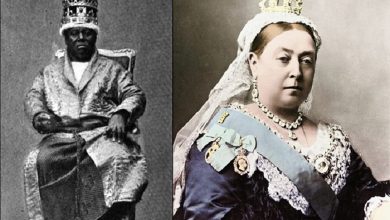The era of King Saul and moral lesson

Before Saul, the Jews of ancient Israel did not have a king. But the country’s situation was heating up because the judges of Israel could not withstand pressure from neighbouring states. Most of all, the Philistines buried themselves on the Israelite lands. In addition, the sons of the priest Elijah not only mocked justice and committed lawless acts but also lost the Ark of the Covenant during the battle.
After that, the people of Israel demanded that the prophet Samuel put a ruler over them. The Almighty announced to Samuel that a young man from the tribe of Benjamin should be anointed for the kingdom in Israel. Meanwhile, Saul went to the city to look for his father’s donkeys. Samuel informed the young man that he should become king and anointed him to the kingdom.
The years of the life and reign of King Saul

According to Tanakh, King Saul was a tall man and “there was no one more beautiful than him.” But he also had negative traits that did him a disservice: suspicion fits of rage, melancholy and jealousy.
After Samuel anointed him to the kingdom, Saul gathered the people, and there they cast lots, which indicated him, and the people for whom Saul’s anointing was still a mystery proclaimed him their king.
Saul was a worthy ruler and won many victories over his enemies. It was he who created the first regular troops in Israel, which successfully fought against the Philistines.
In the first period of his reign, Saul’s faith in God was strong – for blasphemy, he was even ready to sacrifice his son Jonathan.
But then came the second period, which overshadows the conflict with Samuel. They finally broke off relations after Saul did not obey Samuel’s command and completely exterminate the Amalekites. After that, Saul felt that God had left him, and the royal honours no longer comforted him. Yes, and Samuel believed that he was mistaken and chose the wrong king for the people.
The Almighty, turning away from Saul, sent the prophet Samuel to anoint the young man David for the kingdom. After the anointing, the Spirit of the Creator descended on young David.

After that, David ended up at the court of King Saul, where he calmed the willful ruler by playing the Kinnor and made friends with the king’s son Jonathan. And then the future ruler accomplished a real feat, defeating the giant Felistimian Goliath in battle, slaying him with a stone from a sling.
But it was after this brilliant victory over Goliath that King Saul began to envy David. The Book of Samuel says: “From that day onwards, Saul looked suspiciously at David.” Envy and jealousy only strengthened in the king’s soul; he twice unsuccessfully tried to kill David. And after Saul threw a spear at David, he only had to flee to Ramah to Samuel.
Saul continued to fight the Philistines but did not feel the support of God. Before the battle, he did not receive an answer from above about the fight’s outcome; he went to the Endor sorceress, which further angered the Almighty. And the spirit of Samuel, summoned by the sorceress, predicted Saul’s death.

So, it happened. In the battle with the Philistines, three of his sons fell: Abinadab, Jonathan and Malchisua; Saul himself, surrounded by enemies, with the help of one of his soldiers, threw himself on his sword. Thus ended the reign of Saul, replaced by David.


